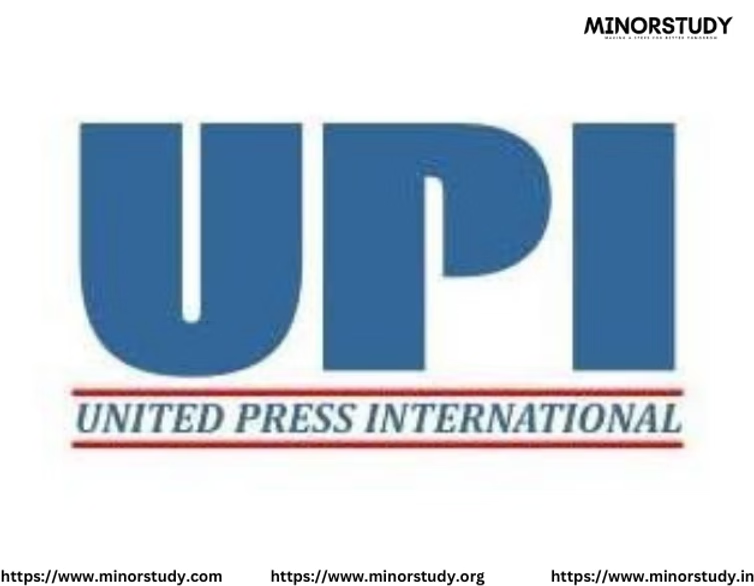9 Underrated Facts That Reveal UPI’s Powerful Legacy in Global News 🗞️🌍
Introduction: Rediscovering a Forgotten Media Giant
UPI: In the age of 24/7 digital news, it’s easy to overlook the giants who laid the foundation of global journalism. One such name is United Press International (UPI) — once a titan in the news world, now a symbol of transformation, resilience, and legacy.
- Introduction: Rediscovering a Forgotten Media Giant
- 🕰️ History of UPI: From Powerhouse to Pivot
- 📌 9 Fascinating Facts About UPI
- 📅 UPI Timeline: Key Moments in Media History
- ❓ UPI FAQs: Common Questions Answered
- 🌐 UPI’s Significance in Journalism History
- 1. A Challenger to the Monopoly
- 2. First on the Scene
- 3. Global Influence
- 4. Cultivating Legendary Journalists
- 🧠 Why UPI Still Matters Today
- 🎯 Observance and Recognition
- 💬 Wishing Message: Honoring UPI’s Legacy
- 📌 Important Points to Remember
- 🏛️ UPI’s Impact on Life and Society
- 🧭 1. Informed Democracies
- 🎓 2. Media Education
- 🎥 3. Legacy in Broadcast
- 🕰️ 4. Shaping Historical Memory
- 🔚 Conclusion: UPI—A Forgotten Hero in Modern Journalism
For decades, UPI shaped global awareness, informed millions, and stood shoulder-to-shoulder with agencies like AP and Reuters. Although it no longer dominates like it once did, UPI remains an influential and historically vital media organization. This article explores UPI’s history, relevance, impact on our lives, and why it still matters in today’s media landscape.
🕰️ History of UPI: From Powerhouse to Pivot
United Press International (UPI) was formed in 1958 through the merger of two major American news agencies: United Press (founded in 1907) and International News Service (INS, founded in 1909).
This merger aimed to compete directly with the Associated Press (AP), and it succeeded for many decades. UPI delivered breaking news to newspapers, radio stations, and eventually television broadcasters across the globe.
📍 Early Origins
United Press was founded by E.W. Scripps to provide a competitive news source for smaller newspapers that couldn’t afford AP.
INS was created by William Randolph Hearst, one of the most powerful media moguls of the 20th century.
Their union as UPI in 1958 formed a major alternative to AP, known for speed, accuracy, and competitive pricing.
📌 9 Fascinating Facts About UPI
UPI was the first agency to report JFK’s assassination in 1963—beating even AP to the punch.
In the 1960s–1980s, UPI was used by over 6,000 media outlets across the globe.
UPI once operated news bureaus in over 100 countries.
The agency was a pioneer in electronic news delivery, helping stations receive real-time updates.
It played a key role during the Cold War, relaying diplomatic developments and military conflicts.
UPI’s photography and video services helped define American broadcast news.
It won several Pulitzer Prizes, especially in foreign correspondence.
UPI introduced the “Unipresser” identity, worn proudly by its journalists.
Though downsized, UPI today focuses on niche reporting: security, politics, health, energy, and defense.
📅 UPI Timeline: Key Moments in Media History
| Year | Milestone |
|---|---|
| 1907 | United Press (UP) founded by E.W. Scripps |
| 1909 | International News Service (INS) established by William Randolph Hearst |
| 1958 | Merger creates United Press International (UPI) |
| 1963 | UPI reports JFK assassination before other agencies |
| 1970s | Peak era: Tens of thousands of clients globally |
| 1982 | UPI sold to Mexican media mogul Mario Vázquez Raña |
| 1990s | Financial struggles force massive downsizing |
| 2000 | Purchased by News World Communications (linked to Unification Church) |
| 2020s | UPI survives as a digital-first wire service focusing on specialized news verticals |
❓ UPI FAQs: Common Questions Answered
Q1: What does UPI stand for?
UPI stands for United Press International, a global news agency based in the U.S.
Q2: Is UPI still active?
Yes. UPI is still operating, though on a smaller scale, and focuses on online content in defense, energy, health, science, and global affairs.
Q3: Who owns UPI now?
UPI is currently owned by News World Communications, which purchased it in 2000.
Q4: What was UPI’s biggest historical scoop?
UPI was the first to report President John F. Kennedy’s assassination in 1963, via journalist Merriman Smith.
Q5: How is UPI different from AP or Reuters today?
Unlike AP or Reuters which offer broader services, UPI focuses on specialized sectors, making it more analytical and less generalist.
🌐 UPI’s Significance in Journalism History
1. A Challenger to the Monopoly
UPI broke the monopoly of AP in American and global journalism, allowing small and mid-size newspapers access to quality wire news.
2. First on the Scene
UPI’s speed became its signature. From war zones to political rallies, UPI reporters were known for being first, not just accurate.
3. Global Influence
UPI was present during major Cold War moments, Vietnam, Cuban Missile Crisis, and other defining 20th-century events, helping shape global perceptions.
4. Cultivating Legendary Journalists
UPI’s alumni include Walter Cronkite, Helen Thomas, and Merriman Smith, names that redefined trust and credibility in journalism.
🧠 Why UPI Still Matters Today
Despite no longer being a giant in the mainstream sense, UPI’s legacy is still relevant:
Its archives are a treasure trove of 20th-century history.
It continues to serve diplomatic, military, and energy sectors with unique insights.
In a world flooded with noise, UPI offers quiet precision and thoughtful analysis.
UPI teaches us that journalism isn’t just about scale—it’s about dedication, ethics, and impact.
🎯 Observance and Recognition
While there’s no formal public observance for UPI, many journalism schools and professional media forums commemorate its contributions through:
Panels and discussions on press freedom
Case studies on Cold War journalism
Workshops on ethical reporting and wire services
For veteran journalists, being a “Unipresser” is still a badge of honor.
💬 Wishing Message: Honoring UPI’s Legacy
🎉 Wishing United Press International continued relevance and recognition. May its decades of fearless reporting continue to inspire the next generation of journalists, historians, and truth-seekers around the world. 🖋️📡
If you are a media lover, take a moment to revisit the role of legacy wire services like UPI in the evolution of truth-telling.
📌 Important Points to Remember
UPI helped democratize news access for small publications.
Known for breaking historical moments first, like JFK’s assassination.
Pioneered fast electronic delivery of news to broadcast media.
Still active in defense, health, science, and foreign affairs reporting.
UPI alumni influenced generations of media ethics and accountability.
🏛️ UPI’s Impact on Life and Society
🧭 1. Informed Democracies
UPI’s balanced and swift reporting gave citizens and policymakers critical information—often shaping elections, reforms, and diplomacy.
🎓 2. Media Education
Media students study UPI’s reporting style, especially its concise, direct, and reliable approach to storytelling.
🎥 3. Legacy in Broadcast
Before CNN or social media, UPI’s newsfeeds powered local TV and radio bulletins, connecting millions to the world.
🕰️ 4. Shaping Historical Memory
From the Space Race to Watergate, UPI preserved unbiased records of events—a vital asset in combating revisionist narratives.
🔚 Conclusion: UPI—A Forgotten Hero in Modern Journalism
Though the modern public may not click UPI links as often as they used to, its historical contributions and ethical standards live on.
In an age dominated by viral content, UPI stands as a quiet, dignified reminder that journalism is not just about being loud—it’s about being right. Its evolution from media titan to specialized wire service is a lesson in resilience, reinvention, and the enduring value of credible news.
Final Thought 🕊️
United Press International may not lead headlines today, but it once led the world in truth-telling—and that legacy deserves our respect.
Let’s not forget those who paved the road for free, fast, and fair journalism.








